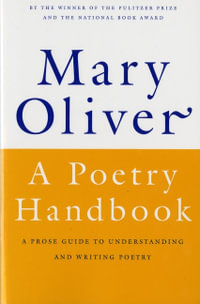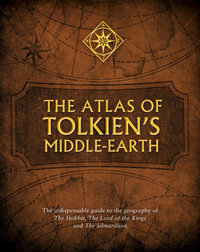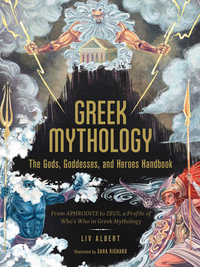"Transnational Latina Narratives in the Twenty-first Century is undoubtedly a significant contribution to Latina literary criticism ... Not only is this the first single-authored book to examine twenty-first century narratives by Latina writers, but it is also one of only a few that displays a pan-Latina scope." - Modern Fiction Studies
"The book constitutes a welcome addition to the scholarship on Latina literature as it opens a vital space for further discussion and debate in what has become an increasingly dynamic field central to an understanding of the changing composition of the United States's society, where according to studies, Latinos will comprise 30% of the population by 2050." - Tulsa Studies in Women's Literature
"By analyzing texts that have received only limited critical attention so far, and focusing on issues of gender, race and migrations, Heredia make visible a narrative corpus that might otherwise go untheorized, placing it in conversation with broad critical and theoretical issues of national and transnational import. The volume eloquently argues for a historically specific approach and a comparative analysis of Latina literature that necessarily incorporates a transnational critical stance." - Latino Studies
"Heredia's book allows readers to enter into dialogue with diverse cultures that are part and parcel of the US experience; to see and understand hemispherically; and to evaluate the colonial past and present at once. The texts she studies embody the Latina imaginary in an era of messy globalization and transnational migrations of products and people which has rendered a different kind of world in the twenty-first century ... Her work is sure to encourage teaching of these five seminal texts and thereby broaden scholarship on the Americas." - Aztlan: A Journal of Chicano Studies
"Juanita Heredia's Transnational Latina Narratives in the Twenty-first Centuryis undoubtedly a significant contribution to Latina literary criticism ... Not only is this the first single-authored book to examine twenty-first century narratives by Latina writers, but it is also one of only a few that displays a pan-Latina scope." - Modern Fiction Studies
"Heredia deserves praise for Transnational Latina Narratives in the Twenty-First Century. She takes up issues of identity formation in five women writers across borders, seas, and continents, from Chicago, to New York, the U.S.-Mexico border, Mexico City, San Juan, Puerto Rico, Santo Domingo, Dominican Republic, and Lima, Peru. Her readings of Denise Chavez (New Mexico), Sandra Cisneros (Chicago, San Antonio, Mexico), Marta Moreno Vega (New York, Puerto Rico), Angie Cruz (New York, Dominican Republic), and Marie Arana (New York, Peru) are rich in autobiographical and cultural detail. Readers witness personal liberation forged out of long-standing gender, racial, and class determinations. This book is in many ways Latin American literary studies. Heredia's frame of reference includes film and music of Latin American popular culture, Indigenous and Afro-Caribbean cultural traditions, and the vestiges of Spanish colonialism, slavery, servitude, and caste systems. However, this book is also U.S. literary studies. Heredia describes new hybrid pan-American identities as a result of migrations to the United States. Scholars from diverse fields will find Heredia's book with its wide range of critical references most useful. Past and future unite, Heredia successfully argues, in a transnational Latina imaginary of a United States and Latin America in transformation in the twenty-first century." - Hector Calderon, Professor of Spanish and Portuguese, UCLA, author of Narratives of Greater Mexico, and co-editor of Criticism in the Borderlands
"In a clear, transparent prose, Heredia examines the power dynamics of transnationalism in the literary works of Chicana, US Dominican, Peruvian-American, and Afro-Puerto Rican feminist women writers. The author analyzes both the conflicts and power inequities of transnational flows between the United States and Latin America, as well as their potential for crosscultural human understanding. This is a must reading for those who are interested in expanding the traditional US Latina literary canon. Heredia provides keen textual readings informed and framed by new interviews with the women authors and scholarship on gender, race, and migration. It offers readers a comprehensive summary of these contemporary narratives as well as important historical frameworks that foreground and explain the local in connection to the global and the hemispheric flows in the Americas. It also highlights the role of women in building bridges, border crossing, and challenging lingering notions of national boundaries. An excellent contribution to Latina literary studies!" - Frances R. Aparicio, Professor of Latin American and Latino Studies, University of Illinois at Chicago, author of Listening to Salsa, and co-editor of Tropicalizations
"At a historical moment in which immigration is at the forefront of national concerns, Heredia's book is a timely tool for helping us understand the complexity of identity formation precisely when national borders weaken or their symbolic perimeters become blurred, and when internal racial and ethnic divisions give way to intra-group affiliations." - Erlinda Gonzales-Berry, Professor Emeritus, Oregon State University, author of Paletitas de Guayaba, and co-editor of The Contested Homeland
"[This book] introduces the uninitiated to the work of some talented Latina writers and provides full notes and a good bibliography for those who would like to learn more about this rich vein in contemporary literature. Recommended" - CHOICE
























